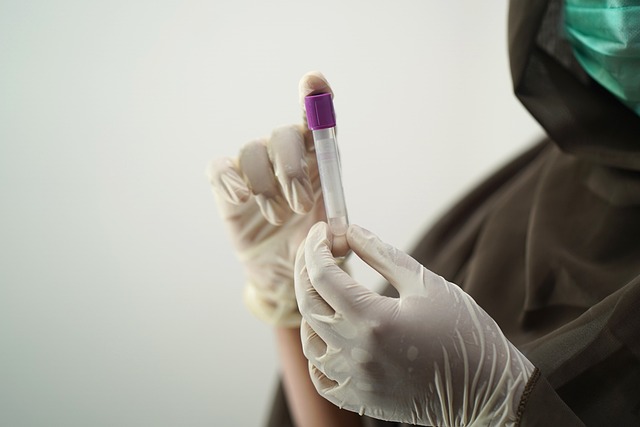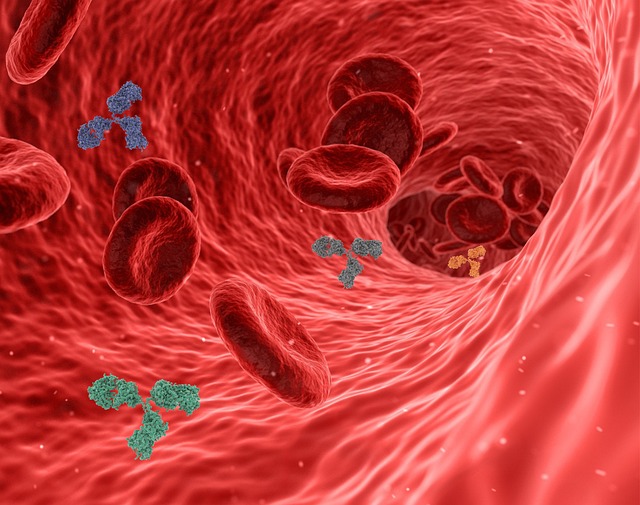The liver's essential role in regulating male hormones, such as testosterone, is highlighted by its functions in metabolizing and detoxifying androgens and synthesizing hormones crucial for sexual differentiation and reproductive health. Liver function tests are indispensable in assessing hepatic health's impact on male sex hormone levels, evaluating enzyme levels, protein concentrations, and substances like bilirubin and albumin. In the UK, these tests, along with Male Hormone Blood Test UK results, are integral for diagnosing liver disorders that may affect hormone production or metabolism. They enable early detection and targeted intervention, which is vital for managing male hormonal health issues. The comprehensive assessment of liver function data in conjunction with Male Hormone Blood Test UK results allows medical practitioners to recognize endocrine system disruptions and tailor treatments to restore both hormonal balance and hepatic function, particularly beneficial for male patients presenting symptoms related to endocrine or liver health. Understanding the normal ranges of male hormones and integrating this knowledge with clinical presentations is essential for accurate interpretation of test results, following guidelines from organizations like BASHH to ensure precise diagnoses and effective treatment plans. This nuanced approach ensures that healthcare providers can deliver high-quality care to male patients within the UK by interpreting Male Hormone Blood Test results in a context-specific manner, considering all aspects of hormonal activity and its effects on physiological processes.
Liver function tests (LFTs) play a pivotal role in diagnosing and managing liver health, with significant implications for hormonal balance, particularly in men. This article delves into the advanced aspects of liver function assessment, emphasizing its importance in understanding male hormone dynamics. We will explore the nuances of these tests within the UK medical context, offering guidance to healthcare professionals on interpreting male hormone blood test results effectively. Understanding the interplay between liver function and male hormones is crucial for accurate diagnosis and treatment planning, ensuring optimal patient care.
- Understanding Liver Function and Its Clinical Implications for Male Hormone Dynamics
- The Role of Advanced Liver Function Tests in Assessing Hormonal Imbalances in Men
- Interpreting Male Hormone Blood Test Results in the UK Context: A Guide for Medical Professionals
Understanding Liver Function and Its Clinical Implications for Male Hormone Dynamics

Liver function plays a pivotal role in the metabolism and clearance of hormones within the body, including those associated with male hormone dynamics. The liver’s role in regulating hormone levels is multifaceted; it not only metabolises and detoxifies androgens such as testosterone but also synthesises hormones that influence sexual differentiation and reproductive health. Advanced liver function tests are instrumental in assessing hepatic health, which can indirectly reflect the balance of male sex hormones. These tests measure enzymes, proteins, and substances like bilirubin and albumin, which can be affected by hormonal imbalances or conditions such as polycystic ovary syndrome (PCOS) in males, where there may be an overproduction of androgens. For medical professionals in the UK, understanding these interrelations is crucial when interpreting a Male Hormone Blood Test UK result, as it can indicate underlying liver disorders that might affect hormone production or metabolism. This comprehensive evaluation enables early detection and intervention, which is key to managing and treating related health issues effectively.
Furthermore, the clinical implications of liver function tests in relation to male hormone dynamics are significant. Elevated liver enzymes or altered liver function parameters can signal a disruption in the endocrine system’s harmony. For instance, conditions like hepatic adenoma, which is more common in individuals with a history of anabolic steroid use, can cause imbalances in male hormones. Conversely, hypogonadism, characterised by deficient male hormone production, may lead to liver function abnormalities. The integration of liver function tests with Male Hormone Blood Test UK results thus provides a more holistic understanding of the patient’s overall health status and can guide targeted therapies aimed at restoring hormonal equilibrium and hepatic function. This integrative approach is particularly valuable in the management of male patients presenting with endocrine or liver-related symptoms.
The Role of Advanced Liver Function Tests in Assessing Hormonal Imbalances in Men

Advanced liver function tests play a pivotal role in diagnosing and monitoring hormonal imbalances in men, particularly when it comes to conditions affecting male hormone production and regulation. In the UK, Male Hormone Blood Test is a common procedure that assesses the levels of testosterone and other androgenic hormones which are crucial for maintaining male reproductive health, muscle mass, bone density, and overall well-being. Elevated or diminished levels of these hormones can signal various conditions, including hypogonadism, polycystic ovary syndrome (PCOS, though more common in women), liver disease, and certain types of cancer.
Liver function tests, including those for male hormones, are integral to the detection and management of such disorders. The liver metabolizes and excrees sex hormones, and its dysfunction can lead to a disruption in hormonal balance. For instance, liver conditions like cirrhosis or hepatitis can affect androgen levels, impacting male health significantly. Therefore, healthcare providers in the UK often utilize these advanced tests to obtain a comprehensive picture of a patient’s endocrine and hepatic status, thereby enabling precise diagnosis and tailored treatment plans for hormonal imbalances in men. The integration of Male Hormone Blood Test results with other clinical assessments is essential for a holistic understanding of a patient’s condition, ensuring that any underlying liver issues are not overlooked when addressing male hormonal health concerns.
Interpreting Male Hormone Blood Test Results in the UK Context: A Guide for Medical Professionals

When interpreting male hormone blood test results within the UK context, medical professionals must be well-versed in the normal ranges for androgens such as testosterone, dihydrotestosterone (DHT), androstenedione, and other related hormones. These tests are pivotal in diagnosing and managing a variety of conditions, including hypogonadism, polycystic ovary syndrome (PCOS) in males, and various forms of infertility. The reference ranges for these hormones can be influenced by age, ethnicity, and individual patient health status, emphasising the importance of context when evaluating results. In the UK, the British Association for Sexual Health and HIV (BASHH) guidelines often provide a framework for interpreting hormone levels, taking into account the latest evidence-based research. It is crucial that healthcare providers consider these guidelines to ensure accurate diagnosis and effective treatment plans. Additionally, understanding the interplay between male hormones and their impact on physiological functions, such as spermatogenesis, muscle mass maintenance, and bone density, is essential for tailoring treatments to individual patient needs. This requires a nuanced approach, considering both the total hormone concentrations and the bioavailable fractions, as well as the clinical presentation of the patient. By integrating these factors, medical professionals can effectively interpret male hormone blood test results and provide comprehensive care in the UK setting.
In conclusion, the importance of advanced liver function tests as a diagnostic tool for assessing hormonal imbalances in men, particularly within the UK context, cannot be overstated. These tests provide medical professionals with a nuanced understanding of liver function and its correlation with male hormone dynamics, which is essential for accurate diagnosis and effective treatment planning. The guide presented herein underscores the necessity of interpreting male hormone blood test results with attention to both clinical implications and the UK’s unique healthcare landscape. By integrating these advanced tests into routine practice, clinicians can enhance patient care and improve outcomes for men suffering from endocrine disorders related to liver function.
